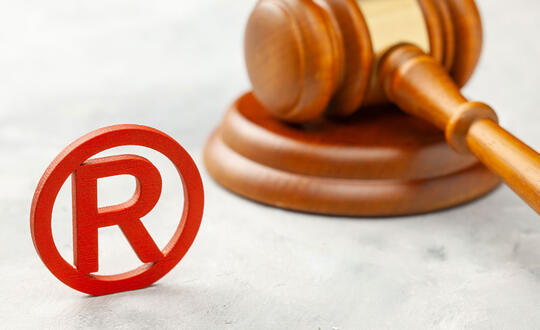Juneteenth’s Recognition as a Federal Holiday Opens Flood of Trademark Filings
Jun 22 2022
Juneteenth. I think it is safe to say that, until recently, most Americans did not fully understand the significance of Juneteenth. Many were likely not even familiar with the term. The term Juneteenth has actually been around since 1890 when it replaced what was then known as “Jubilee Day.” But, what does Juneteenth signify exactly? In 1863, Abraham Lincoln issued the Emancipation Proclamation abolishing slavery in the rebellious states. Unfortunately, it would take more than two years for enslaved people in Texas to be freed. It wasn’t until June 19, 1865 that African-Americans in Galveston, Texas would receive word from Union troops that they were officially freed. Black citizens in Texas subsequently established June 19, or “Juneteenth” as it has come to be known, as a day to commemorate the end of slavery. Not surprisingly, Texas was the first state to declare Juneteenth a state holiday, and it officially became a Federal holiday on June 17, 2021. As the holiday approached this year, it seemed the term “Juneteenth” was everywhere – in broadcast and local media, in advertisements and on social media. As an IP attorney, I was curious whether anyone owned any trademark rights relating to Juneteenth. More specifically, I was curious to know whether someone would try to capitalize on the name of such an historic and significant holiday.
My curiosity led me to where most trademark attorneys go for answers – the Federal Trademark Register of the United States Patent and Trademark Office (“USPTO”). After inputting “JUNETEENTH” into the trademark search tool, a total of 36 active records turned up, six of which have matured to registration. Most of these records reflect applications filed recently, either in 2021 or 2022. This is not surprising as Juneteenth was only recently deemed a Federal holiday. What did surprise me, however, was the fact that so many applicants have attempted to gain rights to this term for opportunistic purposes. This is not to say that it is uncommon for persons or companies to trademark the names of holidays in general. Coincidentally, a search of the term “THANKSGIVING” turned up 36 active records on the Federal Register. A search of “HALLOWEEN” turned up 162 active marks. However, seeking to capitalize on a holiday such as Juneteenth, with such a controversial and storied past, seems plain wrong. Unfortunately, or perhaps fortunately, some who invested in trademarking “JUNETEENTH” quickly realized how wrong it was.
Just last month, retail giant Walmart came out with the release of its “Celebration Edition: Juneteenth Ice Cream,” purportedly celebrating African-American culture, emancipation and hope. Many voiced their dissatisfaction over Walmart’s attempt to commercialize an event which has deeply personal meaning for an already marginalized community. Interestingly, although Walmart was the direct recipient of most of the negative publicity, the retailer did not file the application to register “JUNETEENTH.” Rather, the owner of the mark was Balchem Corp., a company that manufactures ingredients and products for several industrial markets, including the food industry. After activists demanded action, Balchem filed an expedited withdrawal of its trademark application on May 23, 2022. (It is likely that many of the owners of the remaining 29 applications for JUNETEENTH will follow suit). Walmart also faced severe backlash for its use of JUNETEENTH to increase retail sales, and ultimately pulled the product from store shelves, and issued an apology.
For others, owning a “JUNETEENTH” trademark has not resulted in negative repercussions. In 2015, Hecky’s Barbecue filed an application to register JUNETEENTH STRAWBERRY SODA. This mark subsequently registered in 2016 without issue. Why didn’t consumers have a similarly negative reaction to Hecky’s use of JUNETEENTH on consumer products? Some further digging quickly led me to find the answer. It turns out that strawberry soda is a traditional drink served at Juneteenth celebrations. In 1865, newly freed people consumed red food and drinks to symbolize the blood shed by previously enslaved people. As a result, drinking strawberry soda became an act of empowerment and rebellion. Consumers have accepted Hecky’s use of JUNETEENTH because it has a direct correlation to the holiday.
Perhaps the most logical explanation for the disparity between consumers’ reactions to JUNETEENTH trademarks comes from Black entrepreneur Mario Bowler Sr. Bowler proposes that Black-owned businesses should actively seek out Juneteenth-related trademarks as a way to both protect the meaning of this cherished holiday and to promote Black entrepreneurism. Bowler has applied to register the mark “JUNETEENTH JOY” for his gourmet mint, candy and popcorn business, and his company intends to redirect a portion of its profits to help Historically Black Colleges and Universities (HBCUs).
Juneteenth may be a new federal holiday, but its roots stretch back more than 150 years to one of the most painful chapters in American history. Companies that look to obtain commercial trademarks for JUNETEENTH need to tread carefully, given the backlash Walmart experienced. Instead, businesses may want to opt for a non-commercial approach to honor Juneteenth—for example, thoughtful social media posts, a day of community service, or supporting charitable causes. Lesson learned – not everything should be capitalized upon for monetary gain.
Click here to read more about Erica Halstead and Womble Bond Dickinson’s New York office, which focuses on trademark, licensing, and copyright guidance.